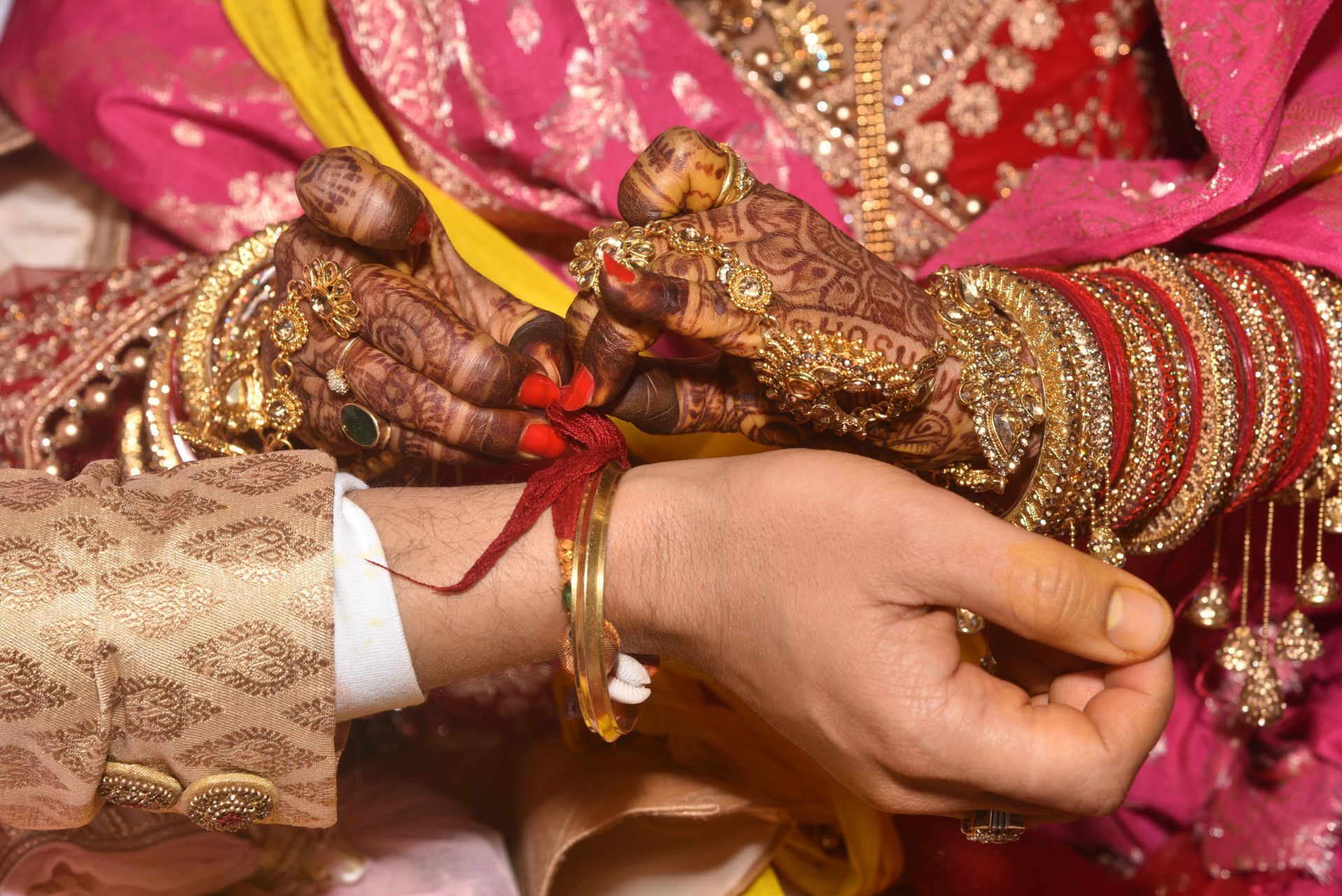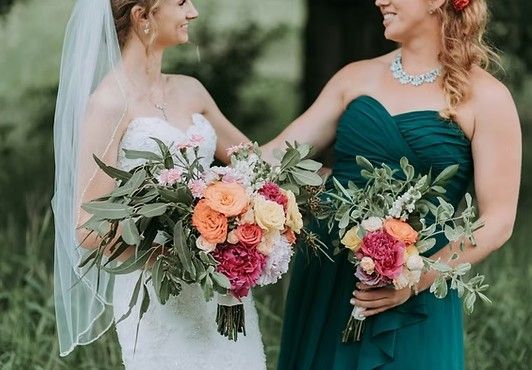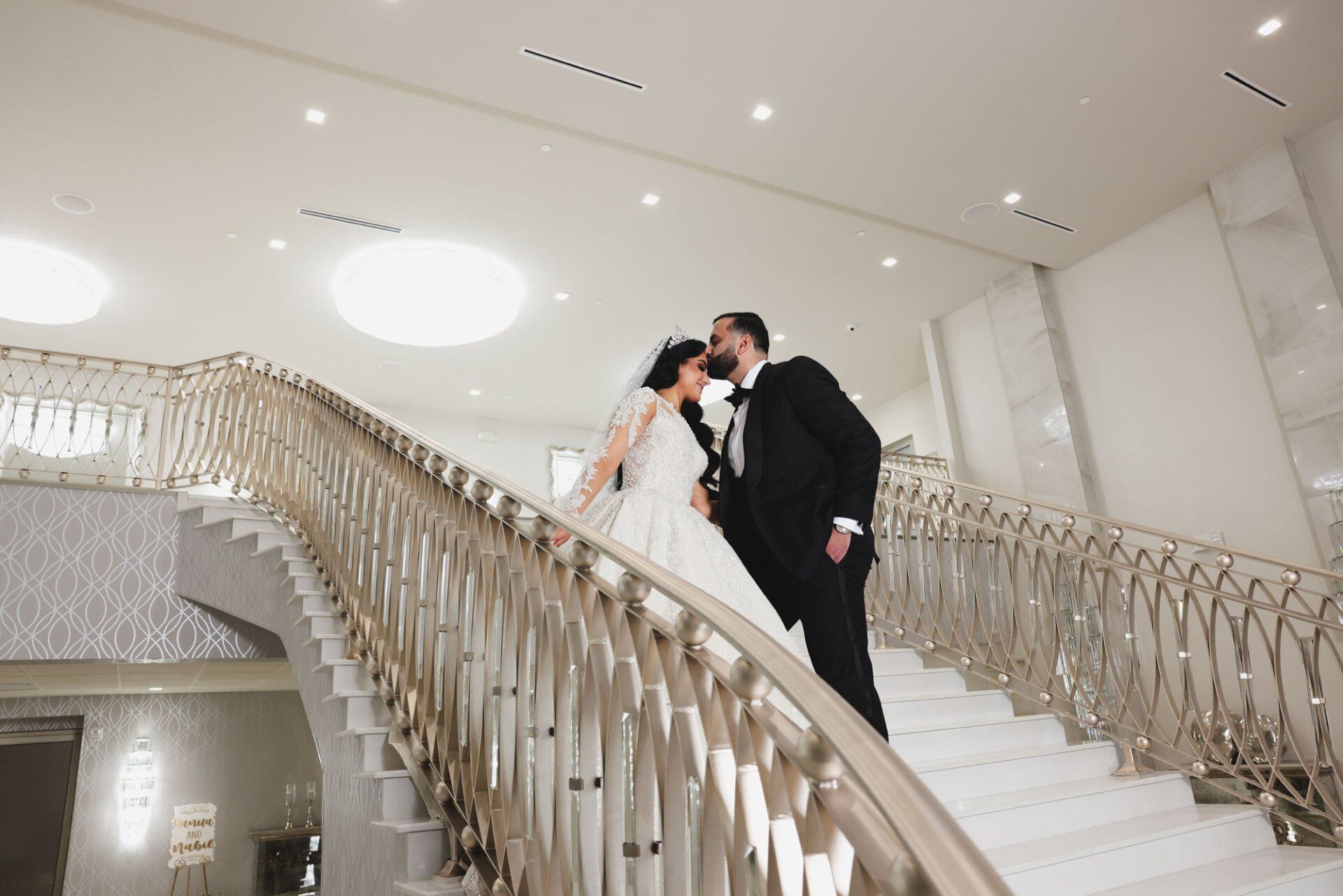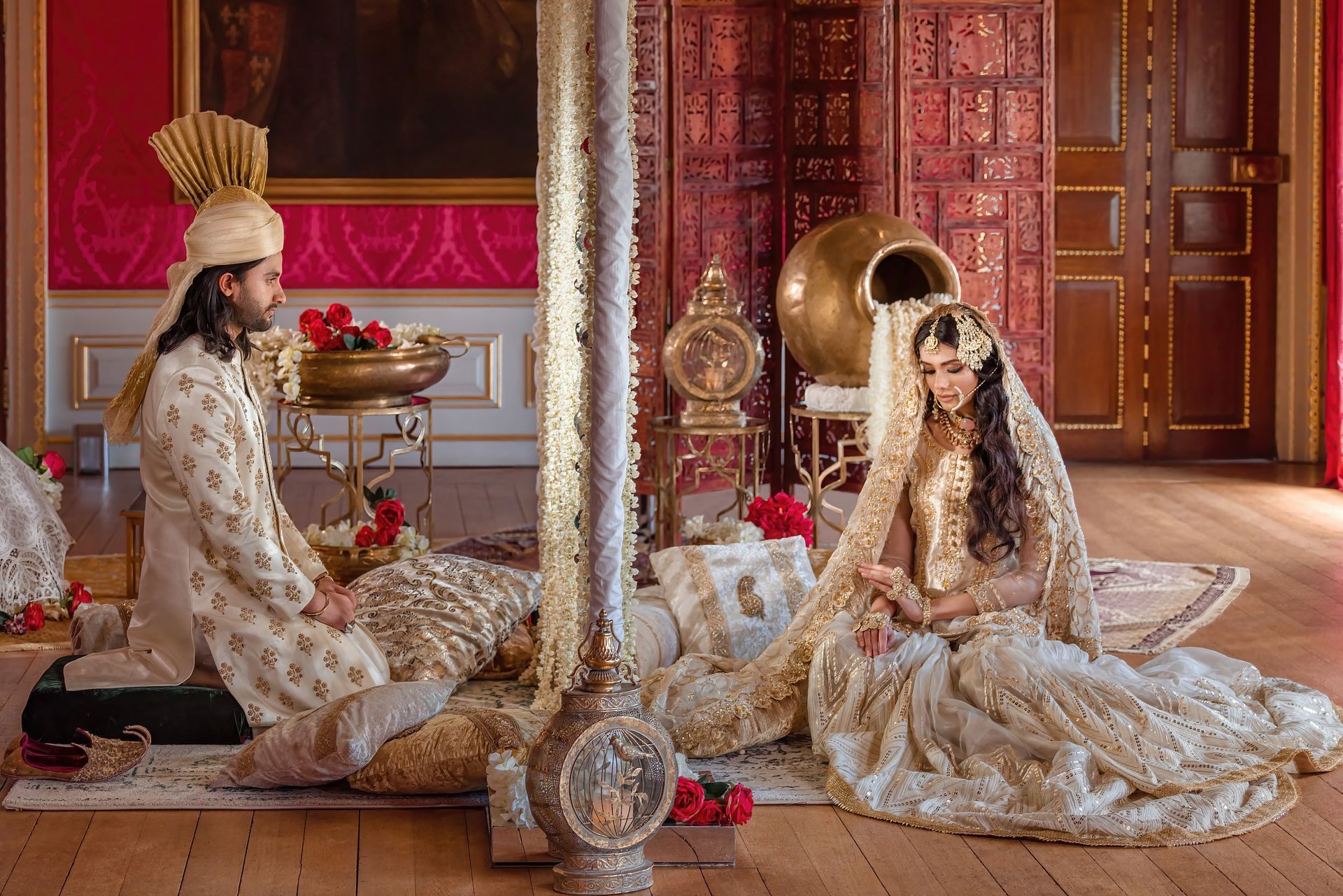
Hindu weddings feature a wealth of beautiful and meaningful gestures between the bride and the groom. One of the most important traditions is known as Mangalsutra (Mangal meaning “sacred,” and Sutra meaning “thread”).
In Mangalsutra, the groom ties three knots around the bride’s neck in the fashion of a necklace using black and gold beads and a holy thread called a Thaali, or Mangalyam, which signifies the eternal bond between the bride and the groom. In the Mangalsutra, the necklace represents the bride’s life and welfare. The act is meant to symbolize the groom’s desire to spend a hundred years with his bride, and by wearing it, she is accepting that wish.
The groom ties two of the knots with the Mangalyam, with a third knot added by one of his family members, usually his sister (or someone else of similar relation). Although, occasionally, the groom will tie all three himself. The three knots symbolize the commitment and unity between the bride and groom, along with the joining of their two families.
What Each Knot in Mangalsutra Means
Each knot is a promise the groom or the groom’s family is making:
First Knot – Manasa
The first knot is known as the Manasa, which signifies the commitment the groom is making to the bride. Comparable to how, in Western culture, the bride and groom give each other engagement rings, the Manasa solidifies the two’s devotion to one another and announces to their families that their lives will be merged from this point forward as they live in love and support of each other.
Second Knot – Vaacha
The second knot represents the commitment between each of their families. Just like how Manasa binds the bride and groom together, Vaacha binds their two families together, deepening the couple’s connection and showing their families’ acknowledgment of it. Similar to the interchanging of rings at a Western ceremony, the second knot symbolizes how the bride and groom are linked together for life, and their families are now aligned with each other.
Third Knot – Karmena
The third and final knot, tied by one of the groom’s family members (often a sister), signifies the promise of the groom’s family to protect and care for the bride. Karmena reaffirms to her that she is a part of their family, and they will look after her as they will the groom. Because respecting your elders is a core principle in Hinduism, this also represents how the young couple is responsible for their families (or, more appropriately, family singular).
Overall, the three knots signify a promise between themselves and their families, displaying their commitment to that promise to the world. With Karmena, the final knot, the two are officially wed. The Mangalsutra becomes one of the five items the bride carries for the rest of her life, wearing it around her neck as a holy reminder to show the world that she is married.
The Color of the Mangalyam
The Mangalyam can either be made with gold or red thread, which have their own blessings:
Red Thread (or Kalava): Longevity and protection from enemies, with God’s goodwill close at hand. It can also be tied to her left hand as well as her neck.
Gold Thread: A Joyful marriage and a long life for the bride and groom. During the ceremony, it’s either tied around the neck or the armlet.
Why the Mangalsutra Is Important
The Mangalsutra is an ancient tradition that is believed to bring good fortune to the couple's marriage and their future. Brides make sure to maintain their Mangalsutra, keeping it in good condition as a visible sign that the marriage is still going strong. Some believe that a deteriorated Mangalsutra is an omen of misfortune, hence why regular upkeep is important.
Although that’s not to say the Mangalsutra can’t be modern. Some women have theirs adorned with gold, diamonds and other luxurious jewelry, making it a fashion statement as well as a matrimonial promise.
The Mangalsutra has a timeless sentiment that, if you choose to participate, can imbue your ceremony with time-honored and impactful tidings for your new future.
Host Your Auspicious Wedding Ceremony in a Luxurious Ballroom in Fairfax, VA
You deserve a wedding venue that will make your ceremony all the more special and memorable. The ballrooms at CrystalView promise to awe guests with grand spaces, glamorous chandeliers and a dramatic mezzanine. We’ll also ensure a hassle-free experience, offering everything from world-class vendors and experienced event planners to valet parking and high-quality air conditioning.
To schedule a tour, call us at (703) 218-4444 or visit our website.




